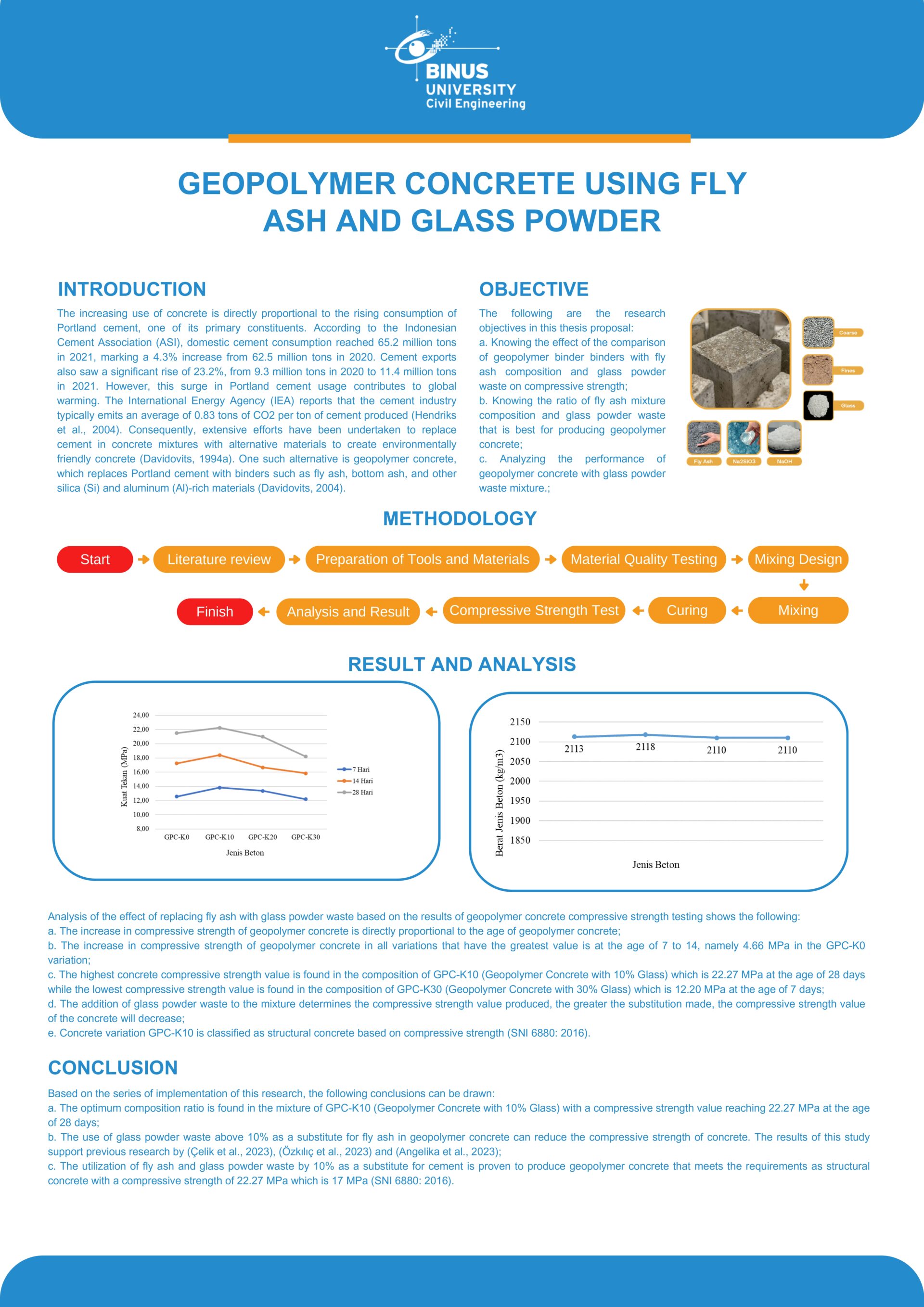Sustainability in Action: A Student’s Contribution to Eco-Friendly Concrete Development

The thesis explores an innovative approach to concrete production by integrating sustainable materials, highlighting the rising concerns over Portland cement’s environmental impact. Cement consumption in Indonesia has been steadily increasing, with 65.2 million tons used in 2021, contributing significantly to CO2 emissions. To address this, the research investigates the use of geopolymer concrete as a sustainable alternative, replacing Portland cement with fly ash and glass powder waste, materials rich in silica and aluminum.
The study aims to identify the optimal composition of fly ash and glass powder for geopolymer concrete, focusing on achieving high compressive strength while maintaining sustainability. By conducting compressive strength tests, the research concludes that a mixture containing 10% glass powder achieves an optimal compressive strength of 22.27 MPa at 28 days. However, increasing the proportion of glass powder beyond this percentage diminishes the concrete’s strength, underlining the balance required between sustainability and performance.
This research is not only a testament to the student’s dedication but also underscores BINUS University’s commitment to fostering innovation in sustainable construction materials. The findings align with national standards (SNI 6880:2016), presenting geopolymer concrete as a viable structural material. This achievement highlights the role of students in addressing global challenges through localized, impactful research.


Comments :